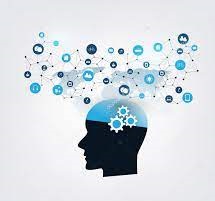Welcome to the future, where minds and machines unite to shape a new era of innovation. Imagine a world where computers not only process data but also understand it, learn from it, and make decisions. This exciting realm is the intersection of Cognitive Computing and the Cloud, where AI and cloud resources synergize to create something truly remarkable. In this blog post, we'll embark on a journey into this captivating fusion of technology.
The Cognitive Revolution
Cognitive Computing is the technological embodiment of human intelligence. It's AI on steroids, capable of understanding natural language, recognizing patterns, and even reasoning. It's the next step in our quest to make computers more human-like in their interactions and decision-making.
The Cloud: A World of Possibilities
On the other side of this synergy lies the cloud, a vast and ever-expanding digital universe where data and processing power converge. Cloud computing has revolutionized how we store, manage, and access information. It's the engine that fuels many of our modern technological marvels.
Where Cognitive Computing Meets the Cloud
Now, let's bring these two juggernauts together.
Imagine a cognitive computing system that can understand human language and analyze text, images, and audio in real-time. It's not just a standalone supercomputer; it's connected to the cloud. This connection allows it to tap into immense computational resources, storage, and data from across the globe.
Applications That Redefine Possibilities
-
Natural Language Understanding: Cognitive systems can analyze human language, understand context, and provide meaningful responses. When powered by cloud resources, they can process vast amounts of text data, making them invaluable for customer support, content analysis, and chatbots.
-
Image and Video Analysis: Cloud-connected cognitive systems can analyze images and videos with incredible precision. This has applications in healthcare, where they can assist in medical imaging, and in security, where they can identify anomalies in surveillance footage.
-
Recommendation Systems: E-commerce and streaming platforms use cognitive computing and cloud resources to deliver personalized recommendations. The system learns your preferences, sifts through vast content libraries, and serves up what you're likely to love.
-
Healthcare Revolution: Cognitive computing can analyze medical data, from patient records to research papers. With cloud resources, it can process this data at lightning speed, aiding in diagnosis, drug discovery, and personalized medicine.
-
Autonomous Vehicles: The synergy of AI and cloud resources is crucial for self-driving cars. They rely on real-time data from the cloud, including traffic updates, weather forecasts, and mapping data.
Challenges and Ethical Considerations
As we venture into this brave new world, we must also address the challenges. The more we rely on AI and cloud synergy, the more data we generate, raising concerns about data privacy, security, and ethics. It's essential to strike a balance between technological advancement and responsible use.
Conclusion: A Bright Future Beckons
Cognitive Computing and the Cloud: Together, they're ushering in a future where machines don't just compute; they understand, learn, and assist us in ways we could only dream of. It's a world where innovation knows no bounds, and the possibilities are as limitless as our imagination. Welcome to the future, where the synergy of AI and cloud resources propels us toward new horizons of discovery and innovation.


No comments yet